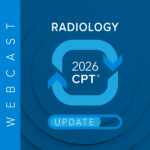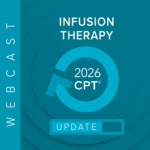Hello to all of my esteemed colleagues with curious minds; today we will embark on a journey into the complex world of Medicare and Medicaid provider audits, specifically orchestrated by the enigmatic entities known as Recovery Audit Contractors, or RACs. The dates of service during COVID are specifically being targeted, and I’ve seen an uptick in audit activity. With a plethora of exceptions to consider, you need a specialized attorney, like David Glaser or me.
Picture this: you’re a leader of a healthcare provider, diligently navigating the seas of Medicare and Medicaid reimbursement. All of a sudden, a tempest approaches – the RACs. These are the bounty hunters of the healthcare world, commissioned to recoup improper payments and ensure that the ship of government healthcare funding stays afloat – paid by contingency, creating a financial incentive that some call biased.
Now, you might wonder, “How do these RACs operate, and what laws govern their actions?” Well, let me shed some light on that. The RAC program was born out of the Tax Relief and Health Care Act of 2006, a piece of legislation that empowered RACs to review Medicare and Medicaid payments – and, when necessary, claw back funds. It’s like the government having financial watchdogs on the prowl, ensuring that taxpayer dollars are spent wisely.
Let’s dive into a specific example. Imagine that a hospital provides a series of outpatient services and bills Medicare for reimbursement. The RACs, armed with their legal authority, start scrutinizing these claims. Suddenly, one RAC believes that the hospital has been billing for services that don’t meet the necessary criteria.
I love how RAC auditors without medical licenses purport to determine medical necessity for physicians. I hope you catch the sarcasm. Maybe it’s an alleged case of “upcoding” – where services are billed at a higher complexity than they actually were. The RACs, acting within the confines of the law, swoop in to recover overpayments, ensuring that the taxpayer’s purse strings are untangled.
But the RACs are not infallible. They might, at times, mistakenly identify an overpayment or misinterpret complex healthcare regulations. That’s where the appeal process becomes crucial. The Medicare appeals process, defined under the Social Security Act, provides a right for providers to challenge RAC decisions. It’s a legal battleground where the provider can present evidence, argue their case, and seek justice against the RAC’s findings.
Now, let’s consider the Medicaid realm. The Medicaid RAC program, established by the Patient Protection and Affordable Care Act of 2010, mirrors its Medicare counterpart. These RACs operate at the state level, conducting audits to identify and recover improper Medicaid payments. It’s like a two-front war on wasteful spending, both federally and within individual states.
For a concrete example, let’s imagine a nursing home submitting claims to Medicaid for resident services. The state-level Medicaid RAC, acting under the Affordable Care Act’s provisions, reviews these claims. If they discover discrepancies – perhaps services billed without proper documentation, or purportedly unsupported by medical necessity – the RAC, wielding its legal mandate, initiates the recovery process.
The RACs, armed with the legislative might of the Tax Relief and Health Care Act and the Affordable Care Act, play a crucial role in safeguarding the integrity of Medicare and Medicaid reimbursements. While their actions may feel like storms to providers, it’s essential to recognize the checks and balances in place, including the appeals process, to ensure fairness and accuracy in the audit battlefield. As we navigate the seas of healthcare reimbursement, may our compass be true, our documentation impeccable, and our understanding of the law unwavering.













